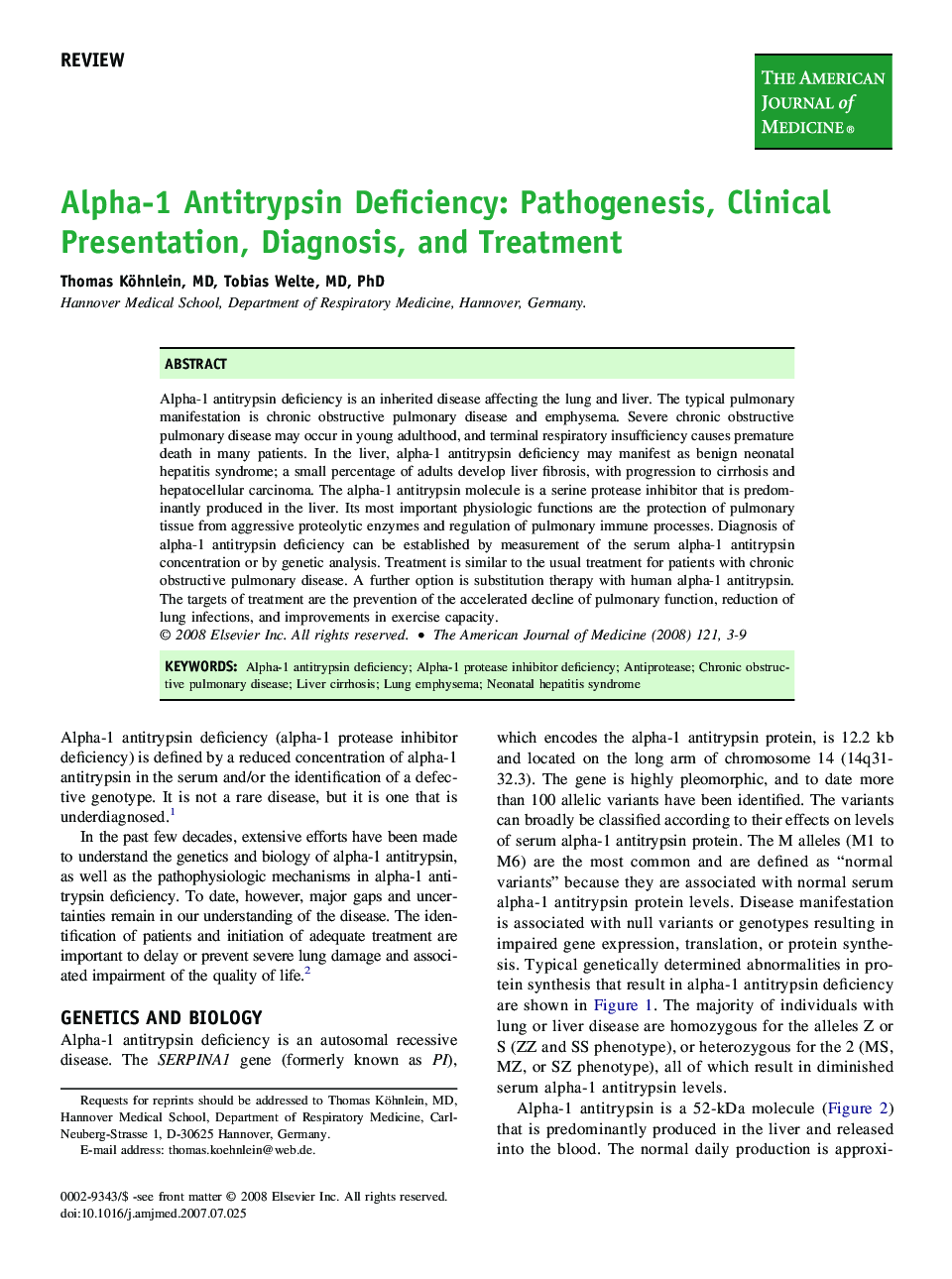| Article ID | Journal | Published Year | Pages | File Type |
|---|---|---|---|---|
| 2720993 | The American Journal of Medicine | 2008 | 7 Pages |
Alpha-1 antitrypsin deficiency is an inherited disease affecting the lung and liver. The typical pulmonary manifestation is chronic obstructive pulmonary disease and emphysema. Severe chronic obstructive pulmonary disease may occur in young adulthood, and terminal respiratory insufficiency causes premature death in many patients. In the liver, alpha-1 antitrypsin deficiency may manifest as benign neonatal hepatitis syndrome; a small percentage of adults develop liver fibrosis, with progression to cirrhosis and hepatocellular carcinoma. The alpha-1 antitrypsin molecule is a serine protease inhibitor that is predominantly produced in the liver. Its most important physiologic functions are the protection of pulmonary tissue from aggressive proteolytic enzymes and regulation of pulmonary immune processes. Diagnosis of alpha-1 antitrypsin deficiency can be established by measurement of the serum alpha-1 antitrypsin concentration or by genetic analysis. Treatment is similar to the usual treatment for patients with chronic obstructive pulmonary disease. A further option is substitution therapy with human alpha-1 antitrypsin. The targets of treatment are the prevention of the accelerated decline of pulmonary function, reduction of lung infections, and improvements in exercise capacity.
